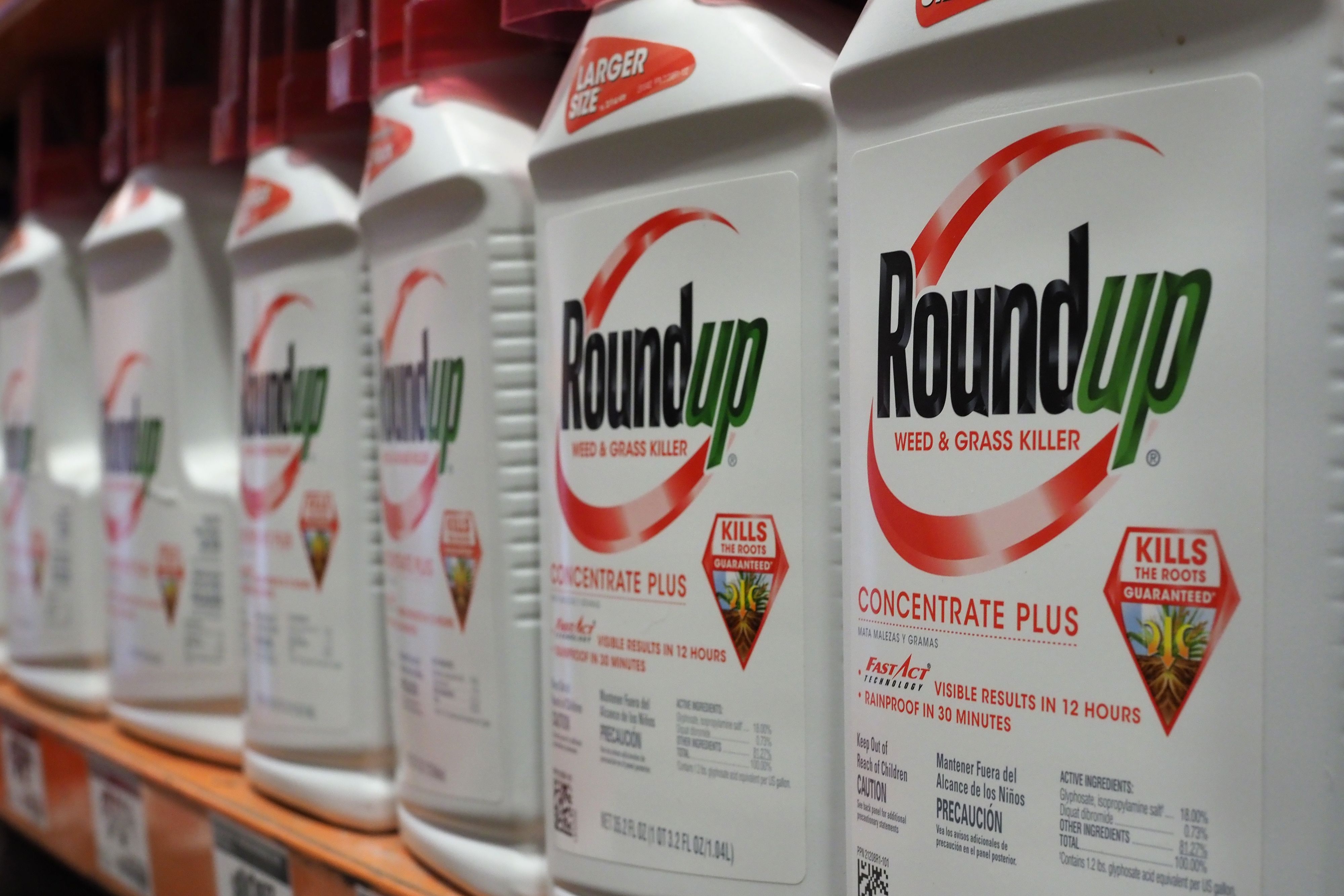The daily business briefing: May 14, 2019
The U.S. and China announce more tit-for-tat tariffs, jury awards $2 billion to couple blaming cancer on Roundup weedkiller, and more


- 1. U.S., China announce more tit-for-tat tariffs
- 2. Jury awards $2 billion to couple blaming cancer on Roundup weedkiller
- 3. Supreme Court rules iPhone users' lawsuit against Apple can proceed
- 4. Stock futures fight to rebound from Monday's plunge
- 5. Oil prices rise as Saudi Arabia reports drone attack on pipeline
A free daily email with the biggest news stories of the day – and the best features from TheWeek.com
You are now subscribed
Your newsletter sign-up was successful
1. U.S., China announce more tit-for-tat tariffs
The Trump administration targeted another $300 billion in Chinese goods for possible tariff hikes after China said Monday it would raise levies on $60 billion worth of U.S. goods starting June 1. China's move was retaliation for President Trump's decision to raise levies on $200 billion worth of Chinese imports. China said its tariffs on more than 5,000 products would rise to 20 percent or 25 percent, up from 5 percent or 10 percent. The intensifying trade tensions between the world's two largest economies came after Trump accused Beijing of reneging on commitments in a draft trade deal. The dispute shook markets. The three main U.S. stock indexes fell more than 2 percent. Both sides said they would keep talking about ending the dispute.
2. Jury awards $2 billion to couple blaming cancer on Roundup weedkiller
A Northern California jury on Monday awarded $2 billion to an elderly Bay Area couple who say Bayer's Roundup weedkiller caused their cancer. Alva and Alberta Pilliod, who are in their 70s, said they were diagnosed with non-Hodgkin's lymphoma in 2011 and 2015 after using Roundup for more than 35 years on their property; both are now in remission. The ruling marked Bayer's third straight loss in cases involving Roundup, which it acquired when the company purchased Monsanto in 2018. A groundskeeper who said the weedkiller gave him cancer was awarded $78.5 million in August, and another man who also said it caused his cancer was awarded $80 million in March. Roundup is still on the market, and does not come with a warning label.
The Week
Escape your echo chamber. Get the facts behind the news, plus analysis from multiple perspectives.

Sign up for The Week's Free Newsletters
From our morning news briefing to a weekly Good News Newsletter, get the best of The Week delivered directly to your inbox.
From our morning news briefing to a weekly Good News Newsletter, get the best of The Week delivered directly to your inbox.
BuzzFeed News The Wall Street Journal
3. Supreme Court rules iPhone users' lawsuit against Apple can proceed
The Supreme Court ruled 5-4 on Monday that four iPhone users have the right to pursue a major antitrust lawsuit against Apple over its App Store. The plaintiffs argue that Apple has a monopoly over the sale of iPhone apps and is using it to charge higher prices than it could get in a free market. Justice Brett Kavanaugh, whose majority decision was joined by the court's four more liberal justices, emphasized that the court was not taking a position on the merits of the lawsuit, but said the lawsuit could proceed because protecting consumers from monopoly pricing is the central concern of antitrust law. In his dissent, Justice Neil Gorsuch said only app developers should be allowed to sue on those grounds.
4. Stock futures fight to rebound from Monday's plunge
U.S. stock index futures rose early Tuesday, struggling to claw back from Monday's huge losses triggered by a new round of tariff hikes between the U.S. and China. Futures for the Dow Jones Industrial Average gained 0.7 percent, while those of the S&P 500 and the Nasdaq were up by 0.7 percent and 1.1 percent, respectively. Monday's losses were the worst the three indexes had seen since the beginning of the year. Citi told clients in a note that its China economists are "cautiously optimistic that a trade deal can eventually be signed," adding that the market could see more swings but had already "priced a lot of this in." Mike Wilson, Morgan Stanley's chief U.S. equity strategist, said in a note that President Trump's tariffs on Chinese imports could hurt corporate earnings, with a recession possible if the trade war keeps escalating.
A free daily email with the biggest news stories of the day – and the best features from TheWeek.com
5. Oil prices rise as Saudi Arabia reports drone attack on pipeline
Saudi Arabia said Tuesday that drones armed with bombs had attacked one of its oil pipelines in what government officials called an "act of terrorism." Other energy infrastructure in the country also reportedly has been targeted following an attack by saboteurs against two oil tankers off the United Arab Emirates coast. Yemen's Houthi rebels said they had launched drone attacks within Saudi Arabia in retaliation for the kingdom's leadership of a coalition fighting the rebels since 2015. "This is a message to Saudi Arabia, stop your aggression," rebel spokesman Mohammed Abdel-Salam told The Associated Press. Oil prices rose early Tuesday following the report, with benchmark U.S. West Texas Intermediate crude futures up by 0.8 percent, and Brent crude futures up 1.2 percent.
Harold Maass is a contributing editor at The Week. He has been writing for The Week since the 2001 debut of the U.S. print edition and served as editor of TheWeek.com when it launched in 2008. Harold started his career as a newspaper reporter in South Florida and Haiti. He has previously worked for a variety of news outlets, including The Miami Herald, ABC News and Fox News, and for several years wrote a daily roundup of financial news for The Week and Yahoo Finance.
